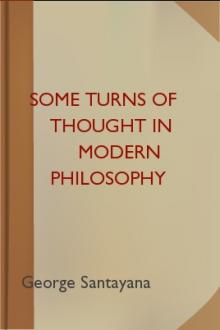The Eight Pillars of Prosperity - James Allen (top rated books of all time txt) 📗

- Author: James Allen
- Performer: -
Book online «The Eight Pillars of Prosperity - James Allen (top rated books of all time txt) 📗». Author James Allen
Eight pillars of prosperity
By James Allen.
1911
Contents
Preface Eight pillarsFirst pillar - Energy
Second pillar - Economy
Third pillar - Integrity
Fourth pillar - System
Fifth pillar - Sympathy
Sixth pillar - Sincerity
Seventh pillar - Impartiality
Eighth pillar - Self-reliance
The temple of prosperity
PrefaceIt is popularly supposed that a greater prosperity for individuals or nations can only come through a political and social reconstruction. This cannot be true apart from the practice of the moral virtues in the individuals that comprise a nation. Better laws and social conditions will always follow a higher realisation of morality among the individuals of a community, but no legal enactment can give prosperity to, nay it cannot prevent the ruin of, a man or a nation that has become lax and decadent in the pursuit and practice of virtue.
The moral virtues are the foundation and support of prosperity as they are the soul of greatness. They endure for ever, and all the works of man which endure are built upon them. Without them there is neither strength, stability, nor substantial reality, but only ephemeral dreams. To find moral principles is to have found prosperity, greatness, truth, and is therefore to be strong, valiant, joyful and free.
JAMES ALLEN
“Bryngoleu,”
Ilfracombe,
England.
Chapter 1. Eight pillars
Prosperity rests upon a moral foundation. It is popularly supposed to rest upon an immoral foundation - that is, upon trickery, sharp practice, deception and greed. One commonly hears even an otherwise intelligent man declare that “No man can be successful in business unless he is dishonest,” thus regarding business prosperity - a good thing - as the effect of dishonesty - a bad thing. Such a statement is superficial and thoughtless, and reveals a total lack of knowledge of moral causation, as well as a very limited grasp of the facts of life. It is as though one should sow henbane and reap spinach, or erect a brick house on a quagmire - things impossible in the natural order of causation, and therefore not to be attempted. The spiritual or moral order of causation is not different in principle, but only in nature. The same law obtains in things unseen - in thoughts and deeds - as in things seen - in natural phenomena. Man sees the processes in natural objects, and acts in accordance with them, but not seeing the spiritual processes, he imagines that they do not obtain, and so he does not act in harmony with them.
Yet these spiritual processes are just as simple and just as sure as the natural processes. They are indeed the same natural modes manifesting in the world of mind. All the parables and a large number of the sayings of the Great Teachers are designed to illustrate this fact. The natural world is the mental world made visible. The seen is the mirror of the unseen. The upper half of a circle is in no way different from the lower half, but its sphericity is reversed. The material and the mental are not two detached arcs in the universe, they are the two halves of a complete circle. The natural and the spiritual are not at eternal enmity, but in the true order of the universe are eternally at one. It is in the unnatural - in the abuse of function and faculty - where division arises, and where main is wrested back, with repeated sufferings, from the perfect circle from which he has tried to depart. Every process in matter is also a process in mind. Every natural law has its spiritual counterpart.
Take any natural object, and you will find its fundamental processes in the mental sphere if you rightly search. Consider, for instance, the germination of a seed and its growth into a plant with the final development of a flower, and back to seed again. This also is a mental process. Thoughts are seeds which, falling in the soil of the mind, germinate and develop until they reach the completed stage, blossoming into deeds good or bad, brilliant or stupid, according to their nature, and ending as seeds of thought to be again sown in other minds. A teacher is a sower of seed, a spiritual agriculturist, while he who teaches himself is the wise farmer of his own mental plot. The growth of a thought is as the growth of a plant. The seed must be sown seasonably, and time is required for its full development into the plant of knowledge and the flower of wisdom.
While writing this, I pause, and turn to look through my study window, and there, a hundred yards away, is a tall tree in the top of which some enterprising rook from a rookery hard by, has, for the first time, built its nest. A strong, north-east wind is blowing, so that the top of the tree is swayed violently to and fro by the onset of the blast; yet there is no danger to that frail thing of sticks and hair, and the mother bird, sitting upon her eggs, has no fear of the storm. Why is this? It is because the bird has instinctively built her nest in harmony with principles which ensure the maximum strength and security. First, a fork is chosen as the foundation for the nest, and not a space between two separate branches, so that, however great may be the swaying of the tree top, the position of the nest is not altered, nor its structure disturbed; then the nest is built on a circular plan so as to offer the greatest resistance to any external pressure, as well as to obtain more perfect compactness within, in accordance with its purpose; and so, however the tempest may rage, the birds rest in comfort and security. This is a very simple and familiar object, and yet, in the strict obedience of its structure to mathematical law, it becomes, to the wise, a parable of enlightenment, teaching them that only by ordering one’s deeds in accordance with fixed principles is perfect surety, perfect security, and perfect peace obtained amid the uncertainty of events and the turbulent tempests of life.
A house or a temple built by man is a much more complicated structure than a bird’s nest, yet it is erected in accordance with those mathematical principles which are everywhere evidenced in nature. And here is seen how man, in material things, obeys universal principles. He never attempts to put up a building in defiance of geometrical proportions, for he knows that such a building would be unsafe, and that the first storm would, in all probability, level it to the ground, if, indeed, it did not fall about his ears during the process of erection. Man in his material building scrupulously obeys the fixed principles of circle, square and angle, and, aided by rule, plumbline, and compasses, he raises a structure which will resist the fiercest storms, and afford him a secure shelter and safe protection.
All this is very simple, the reader may say. Yes, it is simple because it is true and perfect; so true that it cannot admit the smallest compromise, and so perfect that no man can improve upon it. Man, through long experience, has learned these principles of the material world, and sees the wisdom of obeying them, and I have thus referred to them in order to lead up to a consideration of those fixed principles in the mental or spiritual world which are just as simple, and just as eternally true and perfect, yet are at present so little understood by man that he daily violates them, because ignorant of their nature, and unconscious of the harm he is all the time inflicting upon himself.
In mind as in matter, in thoughts as in things, in deeds as in natural processes, there is a fixed foundation of law which, if consciously or ignorantly ignored leads to disaster, and defeat. It is, indeed, the ignorant violation of this law which is the cause of the world’s pain and sorrow. In matter, this law is presented as mathematical; in mind, it is perceived as moral. But the mathematical and the moral are not separate and opposed; they are but two aspects of a united whole. The fixed principles of mathematics, to which all matter is subject, are the body of which the spirit is ethical; while the eternal principles of morality are mathematical truisms operating in the universe of mind. It is as impossible to live successfully apart from moral principles, as to build successfully while ignoring mathematical principles. Characters, like houses, only stand firmly when built on a foundation of moral law - and they are built up slowly and laboriously, deed by deed, for in the building of character, the bricks are deeds. Business and all human enterprises are not exempt from the eternal order, but can only stand securely by the observance of fixed laws. Prosperity, to be stable and enduring, must rest on a solid foundation of moral principle, and be supported by the adamantine pillars of sterling character and moral worth. In the attempt to run a business in defiance of moral principles, disaster, of one kind or another, is inevitable. The permanently prosperous men in any community are not its tricksters and deceivers, but its reliable and upright men. The Quakers are acknowledged to be the most upright men in the British community, and, although their numbers are small, they are the most prosperous. The Jains in India are similar both in numbers and sterling worth, and they are the most prosperous people in India.
Men speak of “building up a business,” and, indeed, a business is as much a building as is a brick house or a stone church, albeit the process of building is a mental one. Prosperity, like a house, is a roof over a man’s head, affording him protection and comfort. A roof presupposes a support, and a support necessitates a foundation. The roof of prosperity, then, is supported by the following eight pillars which are cemented in a foundation of moral consistency:-
1. Energy 2. Economy 3. Integrity 4. System 5. Sympathy 6. Sincerity 7. Impartiality 8. Self-relianceA business built up on the faultless practice of all these principles would be so firm and enduring as to be invincible. Nothing could injure it; nothing could undermine its prosperity, nothing could interrupt its success, or bring it to the ground; but that success would be assured with incessant increase so long as the principles were adhered to. On the other hand, where these principles were all absent, there could be no success of any kind; there could not even be a business at all, for there would be nothing to produce the adherence of one part with another; but there would be that lack of life, that absence of fibre and consistency which animates and gives body and form to anything whatsoever. Picture a man with all these principles absent from his mind, his daily life, and even if your knowledge of these principles is but slight and imperfect, yet you could not think of such a man as doing any successful work. You could picture him as leading the confused life of a shiftless tramp but to imagine him at the head of a business, as the centre of an organisation, or as a responsible and controlling agent in any department of





Comments (0)